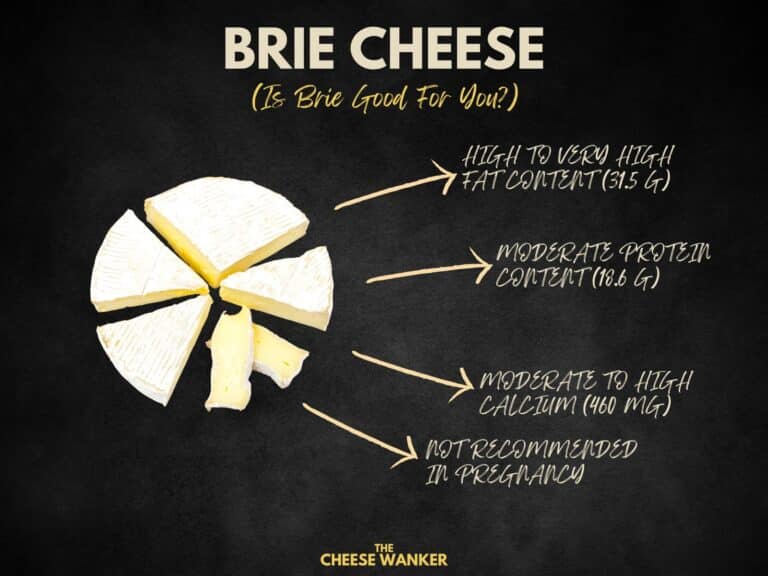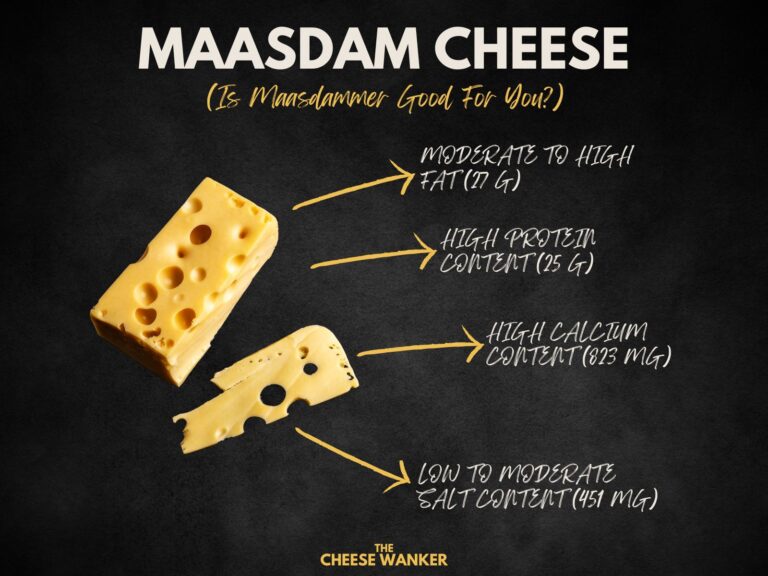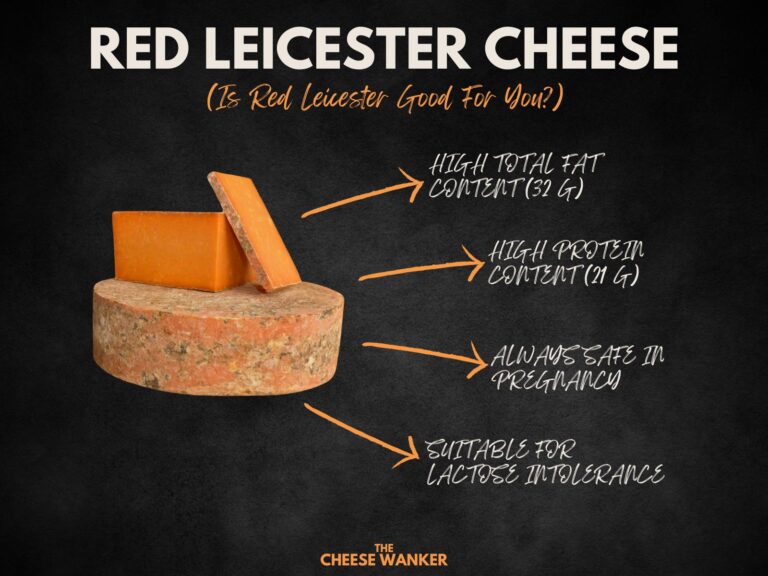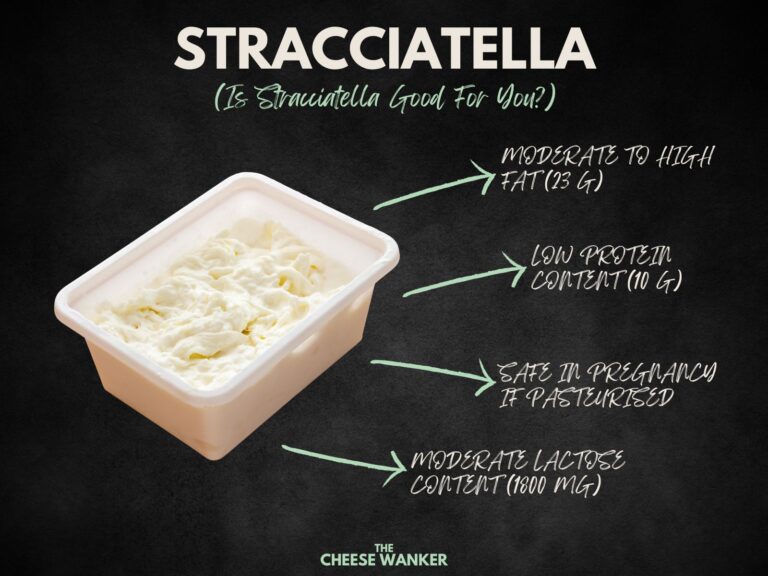Paneer is a fresh cheese that is commonly used in South Asian cuisine, particularly in Indian dishes. It is a type of unripened cheese that is made by curdling milk with an acidic agent, such as lemon juice or vinegar. Paneer is known for its mild, creamy flavour and its ability to absorb the flavours of the spices and seasonings used in Indian cooking. But is it good for you? Read on for the nutrition facts for Paneer.
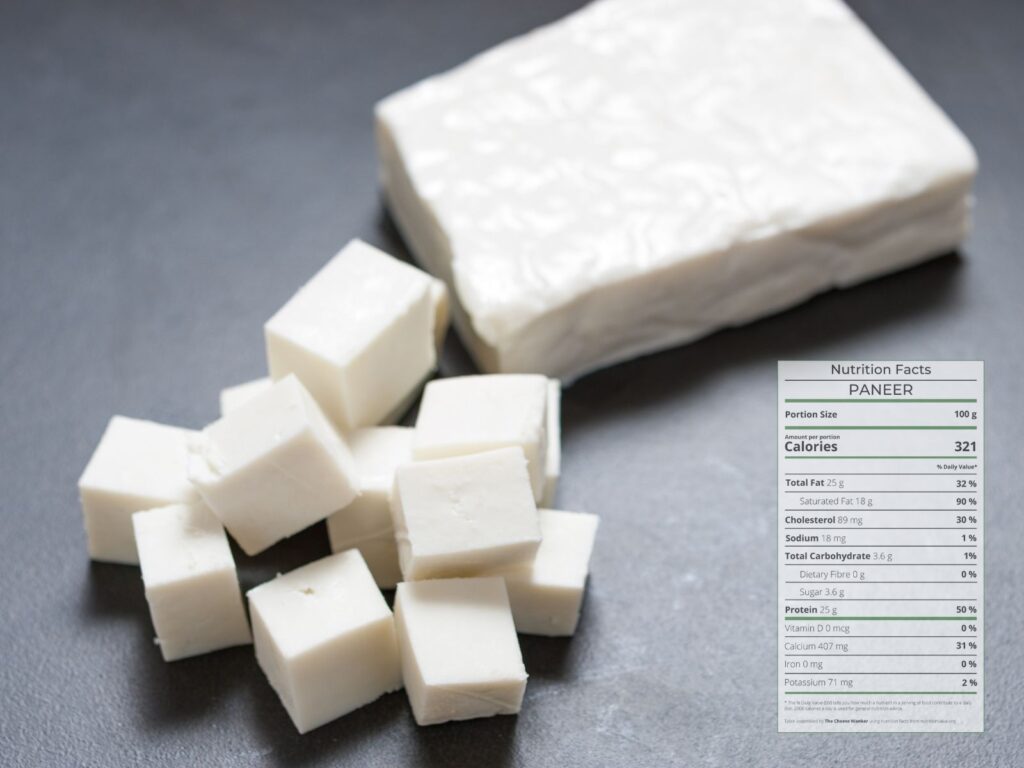
SEE ALSO: Nutrition facts for popular world cheeses in The Cheese Wanker’s index →
What is Paneer?
Paneer, a cheese deeply rooted in the culinary heritage of the Indian subcontinent, stands as a testament to simplicity and versatility.
Originating from ancient traditions, this fresh cheese is made by curdling milk with natural acidic agents. Paneer’s sensory delights extend to its appearance, aroma and taste.
Its pristine white colour symbolises the purity of its ingredients, while the subtle dairy aroma evokes a sense of authenticity. The taste of Paneer strikes a delicate balance, blending the mild sweetness of fresh milk with a subtle tang from the curdling process.
Unsurprisingly, these properties make Paneer a versatile ingredient that can be transformed into a variety of dishes, from rich and flavourful curries to refreshing salads, wraps and even desserts.
Nutrition fact sheet
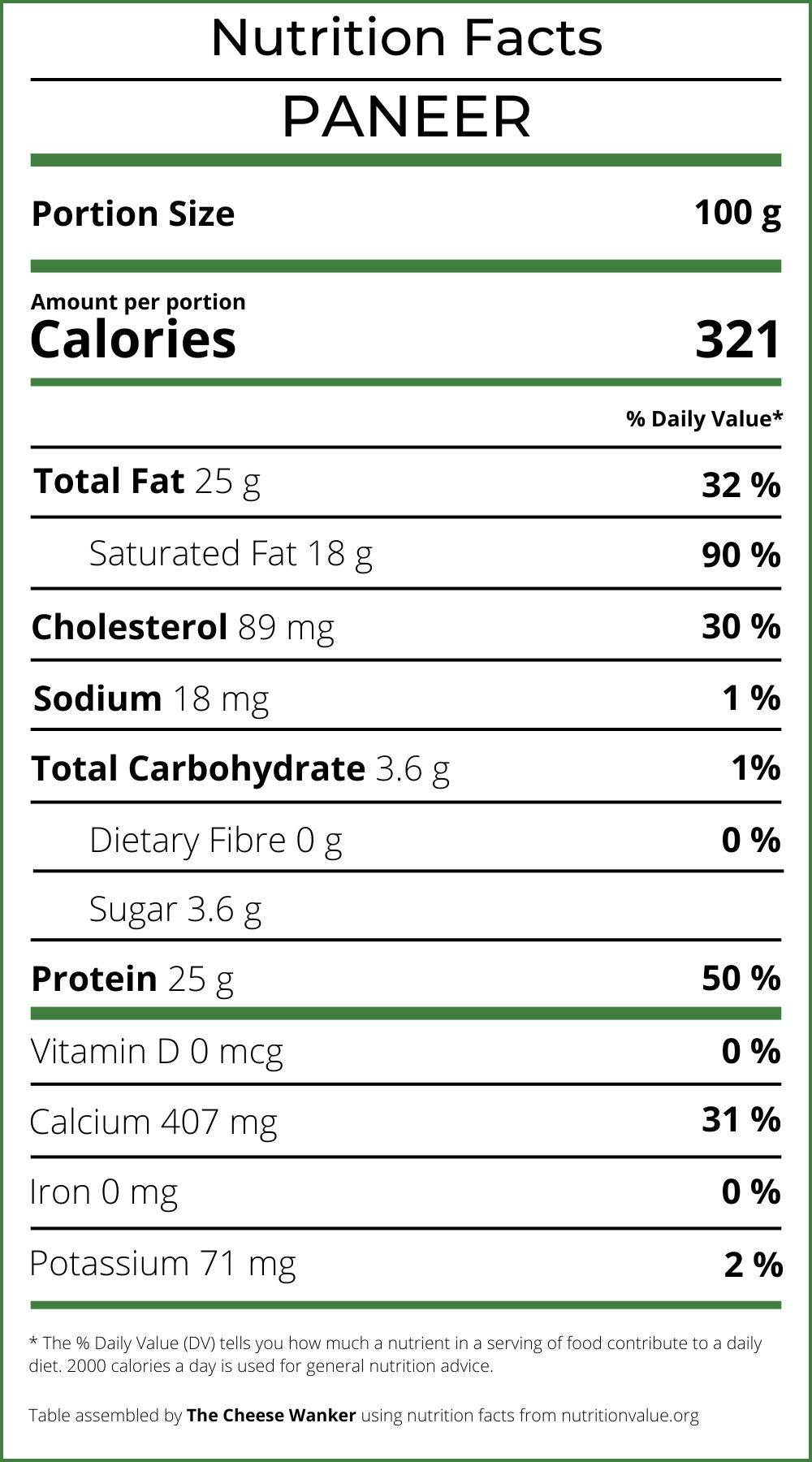
Country of origin
South Asia
Type of Cheese
Fresh Cheese
Milk
Buffalo, Cow
Examples
Block, Cubes
Benefits
Low to Moderate Lactose Levels, Safe in Pregnancy (Pasteurised), High Protein Content, Very Low Sodium Content
Considerations
Milk Protein Intolerance, Moderate Fat Content
Nutrition Facts Summary for Paneer
Eating healthy plays a pivotal role in maintaining overall well-being and preventing chronic diseases. A balanced and nutritious diet provides our bodies with essential vitamins, minerals, and macronutrients, fuelling optimal physical and cognitive function.
With this in mind, let’s have a look at some of the key nutrition facts for Paneer Cheese.
Calorie Content
Let’s start this investigation by looking at the calorie content. Paneer stands as a moderate-calorie cheese, offering approximately 321 calories per 100 grams. However, in recent years, our understanding of calories has evolved.
While calorie counting used to dominate the conversation about nutrition, we now recognise that the quality of calories matters as much as the quantity.
Calories are a measure of energy derived from food, and our bodies need this energy to function optimally. However, the traditional approach of simply counting calories overlooks the complexity of nutrition.
Indeed, not all calories are created equal; the source of those calories is equally important. For instance, 100 calories from a sugary treat affect the body differently than 100 calories from nutrient-dense foods like Paneer.
What sets Paneer apart is not just its calorie content but also the valuable nutrients it provides. And this is the perfect segue to our next sections.
Fat Content
Shifting our focus to the fat content in Paneer, which amounts to 25 grams per 100 grams, it’s crucial to look beyond the numerical value. The traditional narrative surrounding fats often labelled them as dietary villains, but our understanding has evolved considerably.
Not all fats are created equal. Paneer contains a mix of saturated and monounsaturated fats. Saturated fats, once demonised, are now acknowledged to have complex effects on health. While excessive consumption might be linked to certain health issues, moderate intake is a part of a balanced diet.
Monounsaturated fats, found abundantly in foods like Paneer, are heart-healthy fats that can help lower bad cholesterol levels, reducing the risk of heart diseases.
Moreover, fats are essential for the absorption of fat-soluble vitamins (A, D, E, and K) and play a vital role in maintaining healthy skin and hair. They also serve as a concentrated source of energy, crucial for active individuals and those with high energy needs.
Understanding the composition of fats in Paneer offers a nuanced perspective. It’s not merely about the quantity of fat but the type of fats it provides. When consumed in moderation and as part of a balanced diet, the fats in Paneer contribute positively to overall health.
You can learn more about the different types of fat in cheese and which cheeses have the lowest fat content here.
Protein Content
Next, let’s explore the protein content in Paneer. On average, this fresh cheese contains a notable 25 grams per 100 grams. Proteins are the building blocks of life, comprising amino acids vital for the body’s structure and function. Unlike carbohydrates and fats, the body does not store proteins, underscoring their continual requirement in our diet.
The protein in Paneer is of high quality, containing all essential amino acids in appropriate proportions. These amino acids are critical for various bodily functions, including the synthesis of enzymes, hormones and neurotransmitters.
Furthermore, they are also pivotal for tissue repair and muscle growth. Therefore, protein intake vital for individuals engaged in physical activities or those seeking to maintain or build lean muscle mass.
Additionally, proteins offer a prolonged feeling of fullness, which can aid in weight management by curbing excessive calorie intake. Moreover, they contribute to the maintenance of a strong immune system, aiding the body in fighting off infections and illnesses.
Considering these factors, Paneer emerges as a valuable protein source, especially for vegetarians and individuals following plant-based diets.
Want to find out which cheeses have the highest protein content? Click here for our blog post covering cheeses with the highest protein content.
Cholesterol Content
Transitioning to the topic of cholesterol content in Paneer, which stands at 89 mg per 100 grams, it’s imperative to dispel common misconceptions about dietary cholesterol. Cholesterol is a lipid molecule crucial for building cell membranes, producing hormones, and aiding in vitamin D synthesis.
While excessive levels of cholesterol in the blood are associated with certain health risks, the relationship between dietary cholesterol and blood cholesterol levels is more complex than once thought.
Research has shown that dietary cholesterol, such as that found in Paneer, doesn’t have the significant impact on blood cholesterol levels that was previously believed. The body regulates its cholesterol production based on dietary intake.
When we consume cholesterol-rich foods, the body often compensates by producing less cholesterol internally. Therefore, moderate consumption of cholesterol from sources like Paneer doesn’t necessarily lead to adverse effects on heart health.
In the context of Paneer, its cholesterol content should be viewed in light of its other nutritional components. The high-quality protein and essential nutrients it provides make it a valuable addition to a balanced diet.
You can learn more about the impact of dietary cholesterol on blood cholesterol levels in our dedicated post here.
Salt Content
Turning our attention to the salt content in Paneer, a delightful revelation awaits. Paneer, in its natural state, boasts an incredibly low salt content, amounting to just 18 mg per 100 grams. This revelation contradicts the common belief that all cheeses are excessively salty.
Effectively, the mild saltiness of Paneer contributes to its versatile nature, allowing it to seamlessly integrate into a myriad of dishes without overpowering other flavours.
This minimal salt content in Paneer provides a valuable option for individuals mindful of their sodium intake. High salt consumption is linked to various health issues, making low-sodium alternatives a desirable choice.
For those striving to reduce their sodium intake, incorporating Paneer into their diet can be a strategic move. Whether used in curries, salad, or snacks, this fresh cheese not only adds a delightful texture but also brings its subtle, naturally low-sodium taste.
You can read more about why salt is important in cheesemaking in our comprehensive post here.
Calcium Content
Moving on to the topic of calcium content in Paneer (a robust 407 mg per 100 grams), it’s crucial to recognise calcium’s pivotal role in maintaining overall health.
Calcium is the most abundant mineral in the body, primarily stored in bones and teeth, imparting strength and structure. Beyond its structural role, calcium is essential for muscle function, nerve transmission and blood clotting.
Furthermore, adequate calcium intake is particularly vital during childhood and adolescence, when bones are developing. And during adulthood to maintain bone density and prevent osteoporosis, a condition characterised by fragile bones.
Paneer, being a dairy product, is rich in calcium, making it an excellent choice for meeting daily calcium requirements. Additionally, calcium from dairy products like Paneer is more readily absorbed by the body compared to calcium from plant-based sources. This bioavailability is attributed to the unique combination of nutrients present in dairy, enhancing the body’s ability to absorb and utilise calcium effectively.
Furthermore, research suggests that adequate calcium intake may play a role in blood pressure regulation and may reduce the risk of certain chronic conditions, including hypertension and colorectal cancer.
By appreciating Paneer not just for its taste but also for its substantial contribution to our calcium needs, we can proactively support our bone health, ensuring a strong foundation for an active and healthy life.
Get our complete guide to calcium content in cheese in this post here.
Safety in Pregnancy
Delving into the safety of consuming Paneer during pregnancy, it’s paramount to consider the source and preparation methods. This will ensure expectant mothers make informed dietary choices for the well-being of themselves and their unborn child.
Paneer, when made with pasteurised milk, poses minimal risks during pregnancy. Pasteurisation involves heating the milk to kill harmful bacteria, ensuring the safety of dairy products. Paneer crafted from pasteurised milk offers a wholesome and secure option for expectant mothers, providing essential nutrients without the concern of foodborne illnesses.
Rich in protein, calcium, and other vital nutrients, Paneer can be a valuable addition to a pregnant woman’s diet. Protein is crucial for foetal development, aiding in the formation of organs, muscles and tissues. As discussed earlier, calcium also supports bone and teeth development in the growing foetus.
Balanced nutrition during pregnancy is pivotal for the health of both the mother and the baby. Paneer, when sourced and prepared responsibly, can be a nutritious and delectable choice, offering essential nutrients that support the well-being of both the expectant mother and her developing child.
Of course, if you’re unsure of what you can eat during pregnancy, you should consult your healthcare professional to get a personalised plan. You can read more about which cheeses you can eat when you’re pregnant by clicking here.
Lactose Intolerance
Addressing cheese consumption and lactose intolerance requires a nuanced understanding. Lactose intolerance varies widely among individuals, ranging from mild discomfort to severe symptoms, such as bloating, cramps, and diarrhoea, after consuming lactose-containing foods like Paneer.
For those with mild lactose intolerance, consuming small quantities of Paneer might be manageable. It’s crucial, however, to listen to the body’s signals. If discomfort arises, adjusting the intake or opting for lactase supplements, which aid in lactose digestion, can be beneficial.
For individuals with moderate to severe lactose intolerance, choosing lactose-free Paneer varieties or exploring lactase-treated options is a practical approach. These products undergo a process where lactose is broken down, making them easier to digest for individuals with lactose intolerance.
Understanding your tolerance level and adopting personalised strategies will empower you to make informed dietary choices.
Conclusion
Without a doubt, Paneer cheese is a testament to the harmonious fusion of taste and nutrition. As we’ve delved into its nutritional intricacies, a deeper understanding of this versatile cheese has emerged.
Paneer, with its moderate calorie content and high-quality proteins, challenges conventional views about dietary choices, reminding us that the quality of calories matters as much as the quantity. The balance of fats in Paneer illustrates the importance of distinguishing between different types of fats, emphasising that not all fats are adversaries, but essential components of a balanced diet.
Moreover, Paneer’s calcium richness showcases its significance in supporting bone health, making it a valuable addition to diets, especially for pregnant women and those who seek alternatives due to lactose intolerance.
As we demystify misconceptions about cholesterol and embrace the nuanced aspects of salt intake, Paneer emerges not just as a culinary delight but as a source of essential nutrients that can be enjoyed responsibly.
In essence, Paneer’s journey from the kitchen to our plates is a story of balance and understanding. By appreciating its nutritional virtues and adopting tailored approaches for individual needs, we can savour its taste while nurturing our bodies.
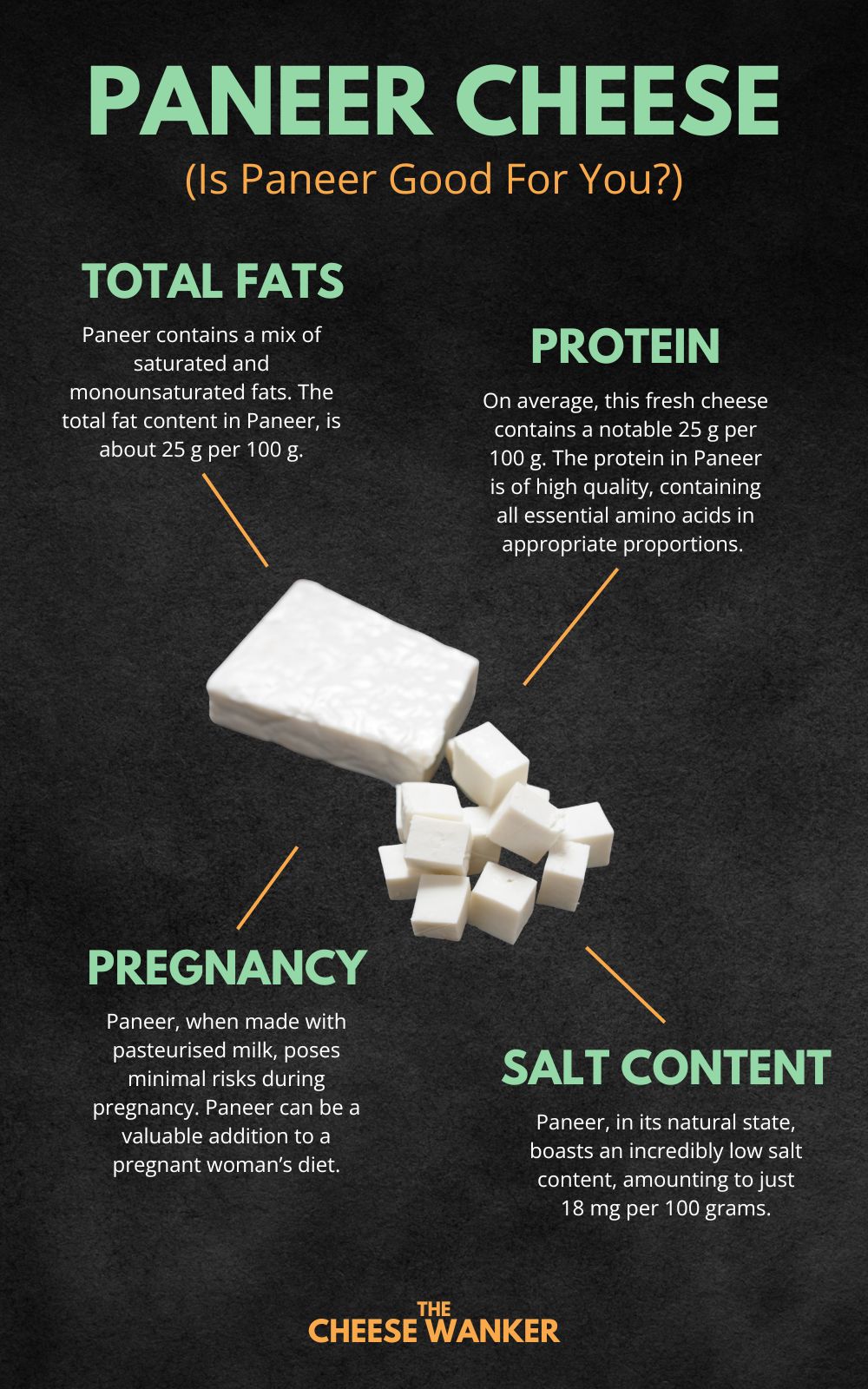
References
Nutritional content
The nutritional content of cheese in our table comes from the USDA Food Data Central Repository and cheese manufacturers. We realise that there can be variations between different brands and producers. Hence, the numbers we have used are averages.
Fat
Our fat RDI data comes from Cleveland Clinic’s Healthy Fat Intake resource.
Type of fat in cheese as per Harvard T.H. Chan’s The Nutrition Source.
Protein
Our protein RDI data comes from Harvard Medical School’s Harvard Health Publishing.
Cholesterol
Is There a Correlation between Dietary and Blood Cholesterol? Evidence from Epidemiological Data and Clinical Interventions? – Maria Luz Fernandez and Ana Gabriela Murillo
Saturated fat, carbohydrate, and cardiovascular disease – Patty W Siri-Tarino, Qi Sun, Frank B Hu and Ronald M Krauss
Effect of cheese consumption on blood lipids: a systematic review and meta-analysis of randomized controlled trials – Janette de Goede, Johanna M Geleijnse, Eric L Ding, Sabita S Soedamah-Muthu
Safety in Pregnancy
All the advice relating to what cheeses you can eat during pregnancy in this article is based on the recommendations by health authorities in Australia, the UK and the USA. If you are unsure about what you can or cannot eat, please consult your doctor.
Australia – FSANZ, United Kingdom – NHS and United Sates of America – FDA
Lactose Content
Lactose residual content in PDO cheeses
Detection of lactose in products with low lactose content
The analysis of lactose in milk and cheese products by HPLC
Food Standards ANZ Food Composition Database
Lactose & Galactose content of cheese
